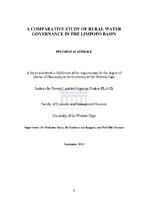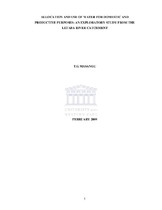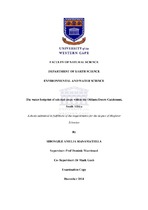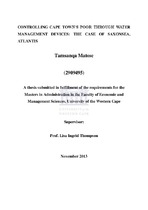A Comparative Study of Rural Water Governance in the Limpopo Basin
Abstract
In this thesis I examine and explore whether and if Integrated Water Resources Management (IWRM) inspired water reforms respond to- and address the diverse realities of women and men in informal (and formal) rural economies of Sekororo, South Africa and Ward 17 in Gwanda, Zimbabwe which are both in the Limpopo basin. South Africa and Zimbabwe, like other southern African countries, embarked on IWRM inspired water reforms, culminating in the promulgation of the National Water Acts in 1998, four years after the attainment of South Africa's democracy in 1994 and 18 years after Zimbabwe attained independence in 1980. I argue that the adoption of IWRM, which emphasises second generation water issues such as demand management, water quality, environmental flow requirements etc, and not the development of water infrastructure, begs the question whether such reforms can make a meaningful contribution to the development agenda in countries where, during apartheid and colonialism, the water rights (among other rights) of millions of blacks were compromised because of unjust legislation and skewed underinvestment in water infrastructure.
Related items
Showing items related by title, author, creator and subject.
-
Allocation and use of water for domestic and productive purposes: an exploratory study from the Letaba river catchment
Masangu, T.G. (2009)In this thesis, I explore the allocation and use of water for productive and domestic purposes in the village of Siyandhani in the Klein Letaba sub-area, and how the allocation and use is being affected by new water ... -
The water footprint of selected crops within the Olifants/Doorn Catchment, South Africa
Manamathela, Sibongile Amelia (University of the Western Cape, 2014)Rapidly increasing global population is adding more pressure to the agricultural sector to produce more food to meet growing demands. However the sector is already faced with a challenge to reduce freshwater utilisation ... -
Controlling Cape Town’s poor through water management devices: the case of Saxonsea, Atlantis
Matose, Tamsanqa (University of the Western Cape, 2013)This study examined the impact of the City’s water management strategies, specifically the water management devices, on selected households in Saxonsea. The impact of cost recovery policies on poor households was interrogated ...




